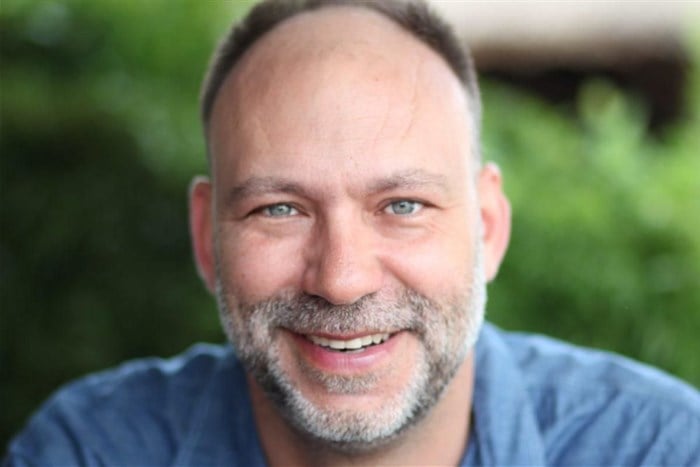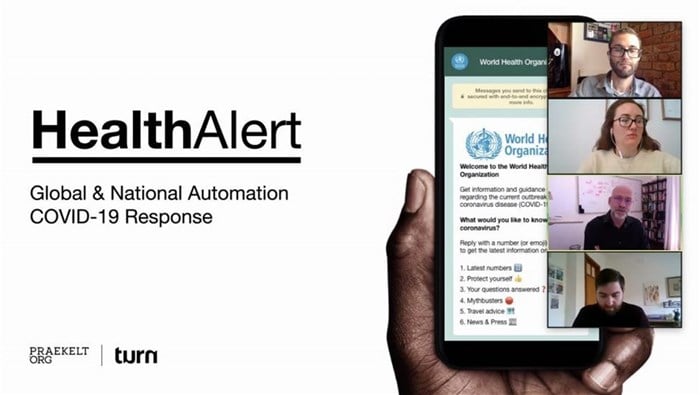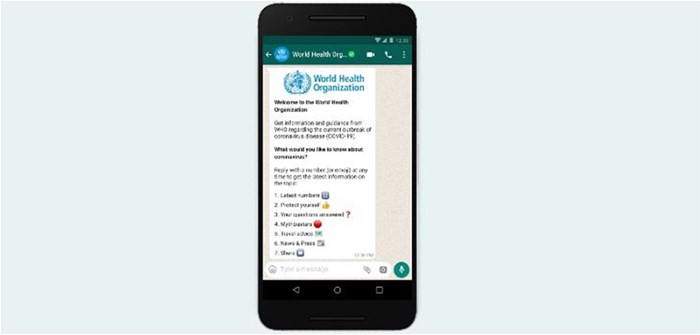#MarketingMasterminds: Gustav Praekelt discusses National Covid-19 WhatsApp Hotline

This month’s Marketing Mastermind is Gustav Praekelt, founder and chairman of non-profit organisation, The Praekelt Foundation. He discusses the National Covid-19 WhatsApp Hotline.

How did this idea come about?
Fake and incorrect information spreads quickly through social media and messaging platforms. In times of crisis, like the Covid-19 pandemic, people need accurate, relevant information that they can access safely, in real time, so that they can make the right health decisions for themselves and their families.
When the pandemic hit South Africa, a key challenge was combating fake news and getting accurate information to people. At the time, nobody knew how the virus was transmitted, how serious it was, or what precautions to take.
The Praekelt Foundation had been thinking about ways to solve this challenge for a while. So, when WhatsApp approached us to collaborate on Covid-19 solutions, we thought, what better way to disseminate accurate information than through WhatsApp?
We quickly built a prototype of the national health service that was approved by WhatsApp and the Department of Health. Within two weeks, the National Covid-19 hotline – powered by WhatsApp and promoted by Facebook – went live. Within a week of launch, more than one million people had engaged with the bot.

Why was there a need for a solution like this?
Fake and inaccurate news can hamper efforts to contain the virus’s spread and cause unnecessary panic among the public.
There have been hundreds of fake news reports relating to the pandemic, and there’ll be hundreds more as the vaccination rollout programme gets underway. Herd immunity is key to protecting public health, but inaccurate information can make people hesitant to get the vaccine.
But people need to understand that the vaccines are effective and that, in getting vaccinated, they’re also protecting those around them.
To achieve herd immunity, 60% to 70% of the population needs to be vaccinated. That’s 40 million people. It’s a humungous task and the logistics of making it happen are extremely complex. This is the largest public health initiative that has ever been undertaken, in South Africa and the world. Information, securely disseminated, is at the heart of it all.

How does the Covid-19 hotline work?
The National Covid-19 line provides official information in five official languages, on topics including:
- Daily and total case numbers,
- WHO and Department of Health guidelines on how to protect yourself, and
- Lockdown information, including curfew times and gathering restrictions.
Users text the word ‘Hi’ to 0600 123 456 and the bot responds with a menu of options for the different information hubs. The Health Check option, for example, asks users questions about their symptoms, triages their results, and advises if a Covid test is necessary.
It’s the most accurate source of Covid-19 information in South Africa. It’s updated daily and immediately after every national address by President Cyril Ramaphosa.
We’re currently expanding the platform’s functionality whereby users can opt in to receive notifications about things like when the vaccine is available and how to register for one, as well as notifications about changes to lockdown restrictions and daily case numbers. South Africa will be the first country in the world to offer this service.
We’re also working on a vaccine check functionality to complement Health Check. It will triage users based on factors like comorbidities, age, etc., to predict when they’ll be eligible for the vaccine.
Why did you choose WhatsApp for the campaign?
We partnered with WhatsApp on the National Department of Health’s MomConnect initiative, which aims to support maternal health through the use of cellphone-based technologies integrated into maternal and child health services. So, we already had an established partnership with the platform.
Crucially, however, is WhatsApp’s end-to-end message encryption. Users are sharing personal information and doing health checks; the encryption assured them that their conversations were confidential and their data anonymous.
We were also keen to try out WhatsApp’s new API functionality for business accounts, including notifications, rich multimedia content, and quick-reply buttons. These features make the platform more user friendly.
Tell us about your campaign approach.
The first phase was about getting accurate information out as fast as possible, to as many people as possible.
The second phase is about informing people about the national vaccine rollout plan, including:
- How to register,
- How the vaccines work,
- Who manufacturers them, and
- The efficacy rates of the available vaccines.
We used Facebook credits to run adverts on Facebook and Instagram, driving people to the WhatsApp bot.
And what were the results?
Over eight million people have engaged with the South African WhatsApp bot, with over 100,000 daily users. To date, we’ve sent half a billion messages. To date, we’ve completed over three million health checks.
Ours and the World Health Organization (WHO) bot – which we also built, and which has nearly 14 million users – are the two largest Covid bots in the world.
There has also been a spike in usage over January and February, with the rollout of our vaccine hub. It’s constantly updated with new information and we’ll also use the platform to promote the national registration system when it’s available to the general public. At the moment, it’s only available to healthcare workers.
The hotline number appears everywhere: on TV broadcasts, mobile testing units, on company websites. It’s also been rolled out to 10 other countries, including the Democratic Republic of Congo, Uganda, Mauritius, Bangladesh, Ethiopia, and Mozambique.
What challenges did you experience in rolling out this campaign?
The biggest challenge was managing the enormous traffic volumes, which pushed WhatsApp’s infrastructure to the limit. The South African platform attracted over a million people in one day, and at one point, the WHO line was processing over 600 messages a second. So, a lot of the challenges were technical in nature owing to the sheer scale of usage.
But there was also the obvious challenge of dealing with a fast-changing situation, and for that we were lucky to have the support of the Facebook team to help us get information out quickly.
What was your biggest learning?
In times of crisis, speed is everything. The ability to collaborate, coordinate, and rapidly respond to constantly changing circumstances, while being able to update information systems in real time, is critical. The support of a responsive team and powerful technology is crucial.
How can people get in touch?
Simply text ‘Hi’ to 0600 123 456 and start exploring the platform. It’s easy and fun to use.



























